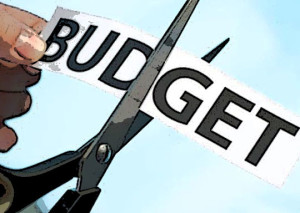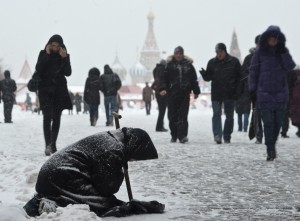
Is there anything worse than a deep financial and economic crisis? Only the inaction of those whose duty it is to deal with it but who however prove unable to handle the task.
Russian officials seem to be completely lost in perplexity in the face of the collapse of oil prices that hit Russia early this year. The situation even verges on the comical. According to Russian Finance Minister Anton Siluanov, the current crisis can be even worse than in 1998 and 1999. Economic Development Minister Alexei Ulyukayev hopes that oil prices might turn around at any time. As for President Putin, he praises the Russian government for its high level of professionalism. A competent government reacts to similar circumstances by making painful but prompt decisions. The current Russian regime keeps hoping for the return of high oil prices and is in no rush to make reasonable forecasts. Meanwhile, the population is getting poorer at a catastrophic speed.
The Russian regime has one astonishing feature. It suffers from an extreme arrogance. Putin’s elite is so confident about the stability of its position that it disregards the most dangerous social and economic trends. In early January, the Kremlin-controlled pollster VTsIOM published the results of a poll, according to which, from December 2014 to December 2015, the number of families that consider themselves poor had grown twice from 22 to 39 percent thus returning to its 2009 level. According to a consensus forecast prepared by the Analytical Center under the Government of the Russian Federation, the Russian Academy of National Economy and the World Bank, in 2015 and 2016, the official poverty rate will grow by 2 percent reaching 16 percent, the highest rate since 2005. Russia’s current fourth in the last quarter-century crisis is accompanied by the deepest decline in household incomes and the highest increase in poverty in the last 15 years. According to Sberbank CIB, 70 percent of consumers switched to cheaper goods. However, as deputy Minister of Economic Development Alexei Vedev stated, the government is positive that the current decline in living standards is happening with “public consent.”
Putin believes that oil prices will undoubtedly recover and everything will work out for the best. It is well known that the Russian president does not care for bad news, and apparently he is being largely spared such unpleasantness. Without a kick from the tsar, the government seems to be taking its time. According to Kommersant newspaper, on December 25, Prime Minister Medvedev charged his cabinet with a task of coming up with a list of budget amendments by…April 1. It is known that as of January12, the responsible governmental commission has not yet begun working despite the further collapse of oil prices (one barrel of Urals crude oil came close to $25). Apparently, the government believes that since the situation cannot get any worse, it can only get better.
Economists and financial experts realize how bad the situation is. Even usually serene and complacent participants of the Gaidar Forum made alarmist statements. Anton Siluanov and Alexei Kudrin frightened the public with the 1998-1999 crisis. Russians, who still remember the losses suffered as a result of the 17-year-old crisis, witness the return of the horrible word “sequester.” This means that tomorrow there might not be enough money to pay pensions and public sector wages and to cover the cost of surgical procedures in hospitals. And no matter how almighty some believe Putin to be, nothing will tempt Russians to keep their money in banks in case of a financial collapse when the population’s anxiety level usually skyrockets.

There are two classic Russian questions: Who is to blame? and What is to be done? The answer to the former one is clear. Putin keeps claiming that the Russian economy would be fine if not for external enemies. The latter one is much harder to answer. Putin and Medvedev suggest we prepare ourselves for the worst. But how do we do this? Nobody in the Kremlin seems to know the answer. While top officials keep believing by inertia that the population is prepared to suffer further and oil prices will again rise to $100 a barrel any day now, financial reserves accumulated over the past years will dry up as a result of inaction and a low level of professionalism. This is an example of how a regime can become its own enemy. The only thing is that it cannot really use repressions against itself.





